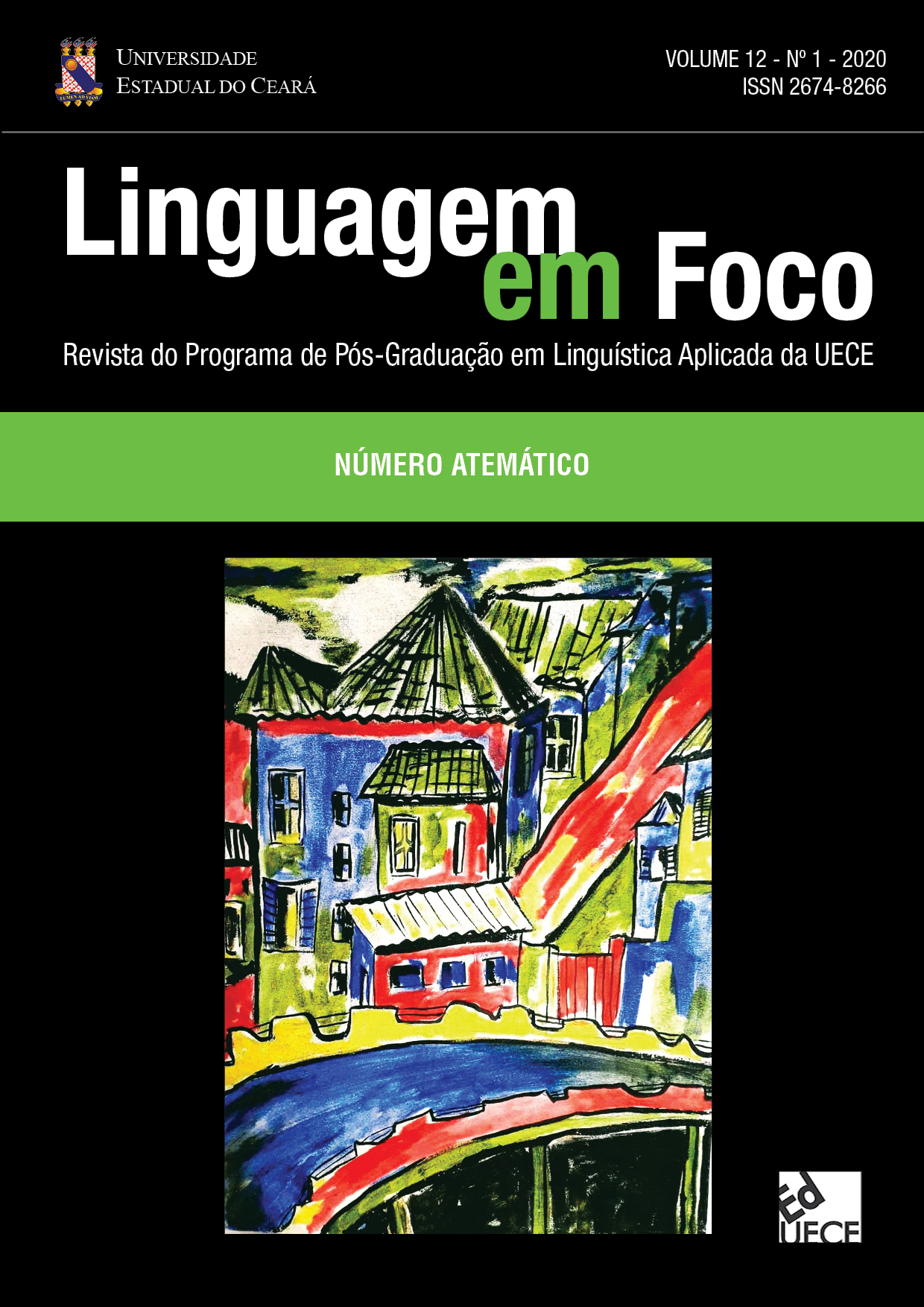The Treatment of Deontic Modality in the Rhetorical-Functional Perspective
Possible in the Classroom Space?
DOI:
https://doi.org/10.46230/2674-8266-12-3432Keywords:
Deontic modality, Teaching, Portuguese languageAbstract
Through deontic modalizing linguistic expressions, the one who speaks or writes expresses assessments of the state of affairs in terms of a system of moral, legal or social norms and, in doing so, constructs images of himself in the discourse. Deontic values range from the extremes of obligation to prohibition, through permission. Such expressions are present both in informal speech contexts - when a guardian of a child says, for example, that he should not cross the street without looking sideways - and in contexts marked by a high degree of formality - when a politician says in his speech in the Chamber of Deputies that we should not tolerate this or that situation. Based on the assumption that the objective of the Portuguese language teacher is to contribute significantly for students to expand their competence in oral and written use of the language (ANTUNES, 2003; BNCC, 2017), we propose a reflection on the possibilities of working with deontic modality category from a rhetorical-functional perspective (MENEZES, 2011). In this article, we will walk a path from theory to practice, presenting proposals for activities that can foster reflection on the effects of meaning produced by deontic modalizing expressions in real contexts of use of the Portuguese language.
Downloads
References
BRASIL. Base Nacional Comum Curricular (BNCC). Educação é a Base. Brasília, MEC/CONSED/UNDIME, 2017. Disponível em: http://basenacionalcomum.mec.gov.br/images/BNCC_publicacao.pdf. Acesso em: 10 fev. 2020.
HENGEVELD, K.; MACKENZIE, J. L. Functional Discourse Grammar: A typologically-based theory of language structure. Oxford: Oxford University Press, 2008.
HENGEVELD, K. Mood and modality. In: BOOIJ, G.; LEHMANN, C.; MUGDAN, J. (Ed). Morphology: a handbook on inflection and word formation. Berlin: Mouton de Gruyter, 2004. p.1190-1202.
LYONS, J. Semantics. Cambridge: Cambridge University Press, 1977. v. 2.
MENEZES, L. C. de. Modalização deôntica e retórica perelmaniana. Revista do Programa de Pós-Graduação em Letras da Universidade de Passo Fundo - v. 8 - n. 2 - p. 162-176 - jul./dez. 2012.
MENEZES, L. C. de. Expressões linguísticas modalizadoras deônticas em função argumentativa: um exercício de análise retórico-funcional. 2011. 332p. Tese (Doutorado em Linguística) - Faculdade de Letras, Universidade Federal do Ceará, Fortaleza, 2011.
MENEZES, L. C. de. A modalidade deôntica na construção da persuasão em discursos políticos. 2006. 122p. Dissertação (Mestrado em Linguística) – Faculdade de Letras, Universidade Federal do Ceará, Fortaleza, 2006.
MOSCA, L. L. S. A atualidade da retórica e seus estudos: encontros e desencontros. Retórica. Actas do I Congresso Virtual do Departamento de Literaturas Românicas. Disponível em: http://dlcv.fflch.usp.br/sites/dlcv.fflch.usp.br/files/linei002_0.pdf. Acesso em 10 de jan.2020.
PERELMAN, C.; OLBRECHTS-TYTECA, L. Tratado da argumentação: a nova retórica. Tradução por Maria Ermantina Galvão Pereira. São Paulo: Martins Fontes, 1996. (trad. de Traité de l´Argumentation. La Nouvelle Rhétorique, Paris: PUF, 1958)
VERSTRAETE, J. C. The problem of subjective modality in the Functional Grammar model. In: MACKENZIE, J. L.; GÓMEZ-GONZÁLEZ, M. Á. (Eds.). A new architecture for Functional Grammar (Fuctional Grammar Series 24). Berlin/New York: Mouton de Gruyter, 2004, p. 243-273.
Downloads
Published
How to Cite
Issue
Section
License
Copyright (c) 2020 Léia Cruz de Menezes

This work is licensed under a Creative Commons Attribution 4.0 International License.
Authors who publish in Linguagem em Foco Scientific Journal agree to the following terms:
- Authors retain the copyright and grant the journal the right of first publication. The articles are simultaneously licensed under the Creative Commons Attribution License which allows sharing the work with an acknowledgement of its authorship and initial publication in this journal.
- The concepts issued in signed articles are the absolute and exclusive responsibility of their authors. Therefore, we request a Statement of Copyright, which must be submitted with the manuscript as a Supplementary Document.
- Authors are authorized to make the version of the text published in Linguagem em Foco Scientific Journal available in institutional repositories or other academic work distribution platforms (ex. ResearchGate, Academia.edu).





























